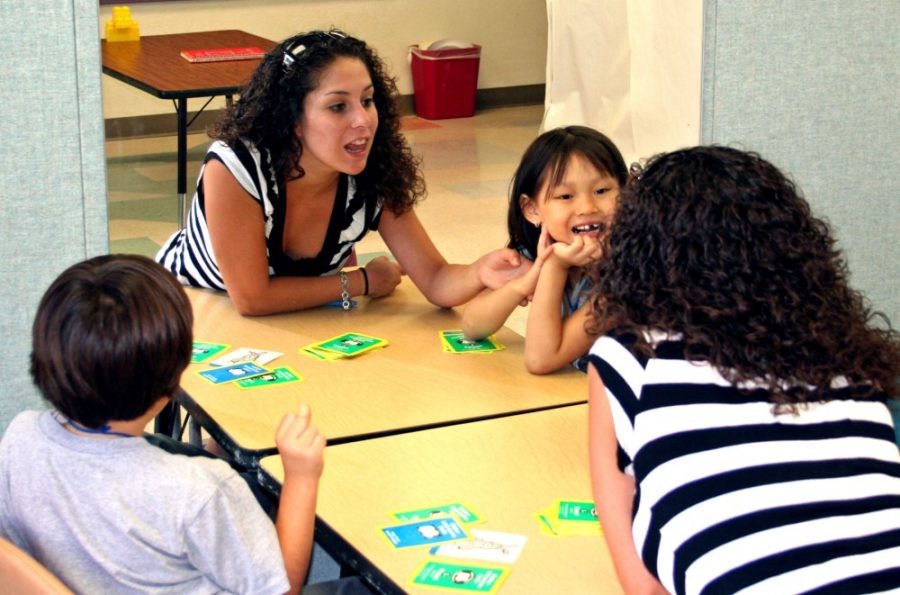Writing a letter, calling a friend, typing a text, signing a phrase: There are endless ways for people to convey their thoughts and feelings. Students and faculty in the UA department of speech, language and hearing sciences endeavor to study methods of communication and how they shape the world in which we live.
“We can do anything from giving therapy to children with speech impediments to helping a stroke victim communicate again to working with people with autism,” said Karen Ayala-Miranda, a sophomore studying speech, language and hearing sciences.
Undergraduate students like Ayala-Miranda take a variety of classes to get a foundation in all the different facets of speech, language and hearing sciences. There are courses on phonetics and language acquisition for those interested in language science and development, a series on communication disorders for students looking into clinical work or disability research, and various classes that teach the neurobiology and anatomy behind speech and hearing.
Speech, language and hearing sciences majors are constantly presented with opportunities to assist in laboratory studies and clinical observations with graduate students and faculty members. Many students in the undergraduate program go on to complete a master’s degree in speech-language pathology or audiology.
Students who pursue speech-language pathology in their graduate studies are interested in the diagnosis and treatment of communication disorders in people of all ages. Pelagie Beeson, professor and head of the speech, language and hearing sciences department, conducts research in communicative disorders that arise in stroke patients.
“I’m really interested in how the brain works and how it supports language,” Beeson said. “I also care a lot about rehabilitation and helping people recover.”
Beeson runs the Aphasia Research Project at the UA, which endeavors to learn more about disorders caused by damage to the areas of the brain that contain language. Mara Goodman, a speech, language and hearing sciences graduate student, is one of Beeson’s assistants for the project.
“My thesis is working on how we can help [patients] best recover in terms of their language and their speaking abilities,” Goodman said.
Goodman and her fellow researchers are looking into data collected over decades and examining how the brain functions through different types of therapy as part of their investigation into aphasia.
The other degree path, audiology, also focuses on the hearing aspect of speech, language and hearing sciences, and deals with auditory disabilities such as hearing loss.
The speech, language and hearing sciences department enjoys getting the community involved in its work and collaborating with disability organizations around Tucson. The department hosts a weekly colloquium open to the public in which professors present interesting research on a variety of speech, language and hearing sciences subjects.
These students study the universally utilized ability of communication; yet many students don’t know much about it. Both Ayala-Miranda and Goodman started off their undergraduate careers in other fields of study.
“I looked into it and immediately fell in love,” Ayala-Miranda said.
While the department is in the UA College of Science, the program is focuses on helping people in the community, which is evident in the passion shown by the students and faculty.
“You can affect somebody’s life, but you get that pursuit of science as well,” Beeson said.
Follow Victoria Pereira on Twitter









